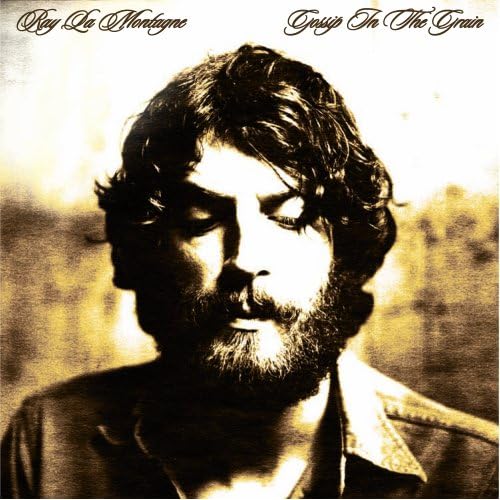Brave New Worlds
/ John Joseph Adams has distinguished himself in the past with outstanding speculative fiction anthologies, from Wastelands to The Living Dead and others. His latest volume, Brave New Worlds, is perhaps one of the finest sets of short fiction that I've ever read, with a stunning table of contents and authors to tell their stories of oppression.
John Joseph Adams has distinguished himself in the past with outstanding speculative fiction anthologies, from Wastelands to The Living Dead and others. His latest volume, Brave New Worlds, is perhaps one of the finest sets of short fiction that I've ever read, with a stunning table of contents and authors to tell their stories of oppression.
Brave New Worlds is a complete turnaround from Wastelands, an anthology that looks at humanity after the demise of civilization. Here, the focus is on societies where government has not only remained, but strengthened to the point where the people themselves become the enemies of the state. It's an incredibly frightening future, and one that feels far more relevant to today's world than most works. The argument between Republicanism and Federalism is a familiar one to anybody who has tuned into the news over the past couple of years.
Indeed, this anthology came to me at a time of personal political crisis. The past couple of years have been ones of discussion, learning and thinking about the differences in political parties, and what these sorts of things mean at the end of day and down the road. The idea of an overly strong state that impinges upon the rights of its citizens is something that is undesirable to me, and what our country represents. Numerous actions taken by the government have had a speculative-fiction feel to it, such as the detainees in Guantanamo Bay and the kill order against a radical cleric overseas, to the authority of the Transportation Security Administration following some terrorist attacks. It is a frightening future, but one that also needs to be balanced against the idea of a libertarian world where little order or government control exists to keep people from killing or harming one another. As such, Brave New Worlds is scary much in the same way that Wastelands (of what I've read and heard of it) was scary: it exists at the other extreme end of the political spectrum.
There are a good number of fantastic stories here. The anthology starts off with Shirley Jackson's classic story The Lottery and continues to tell a great number of tales such as S.K. Gilbow's Red Card, where people are assigned by their state randomly to kill lawbreakers, Ten With A Flag by Joseph Paul Haines that sees citizens given rankings based on their potential and Geriatric Ward by Orson Scott Card, which sees people who have vastly accelerated life spans. One of my absolute favorites is Jordan's Waterhammer by Joe Mastroianni, a tale of miners valued only as tools. Many of the stories here were fairly new to me: I'd either heard of them by reputation or read them once long ago, while there were also a fair number of stories that I have read before, such as Carrie Vaughn's Amaryllis (published on Adam's online science fiction magazine Lightspeed), Philip K. Dick's Minority Report and Paolo Bacigalupi's disturbing Pop Squad. There are few of the stories that I didn't get into, such as The Ones Who Walk Away from Omelas by Ursula K. Le Guin and O Happy Day! by Geoff Ryman, simply not suiting my own tastes for any number of reasons, but these were few and far between.
What impressed me even more than the excellent lineup of stories and authors was that the anthology didn't feel repetitive. There are plenty of short stories and novellas that fall into the dystopian category, but one could have easily told story after story of an intrepid citizen standing up and fighting the power, so to speak. That certainly happens, in their own ways, but there's a broad spectrum of stories to be told. Jordan's Waterhammer is a story that I expected to see more often in the anthology, but stories such as Amaryllis, The Things that Make Me Weak and Strange Get Engineered Away (Cory Doctorow) and the funny Civilization by Vylar Kaftan (a choose your own adventure style story) shows a diversity in the story types, but also the morals and themes behind the stories. While Brave New Worlds is scary, it goes out of its way to demonstrate the numerous ways in which fascism can manifest itself in society, in any location.
One of my favorite stories here was Philip K. Dick’s Minority Report, which I first read in the theater waiting for the movie to begin. Of all the dystopian stories that I can think of, the story and the film both demonstrate the core themes for any type of dystopian story: which is the greater evil, protecting the people from themselves, or allowing them to come to greater harm?
One particularly striking story that helped define the anthology was Tobias Buckell's story, Resistance, on an asteroid colony that adopted techno-democracy, where everybody can vote on every decision. When the time required to vote becomes to much, their voting habits are taken over by a computer, which in turn creates a leader for them, based on their desires. The story demonstrated to me that in all cases, governance is the product of we the people. Society can certainly back the wrong people, as history has seen from time to time, with figures such as Hitler, Stalin or Mussolini, but rather than a universal evil, supporters remain, for whatever reason: fear, threads, naïveté or blind obedience. Despite the uproar online over the TSA screening procedures enacted around the holiday period, a majority of Americans supported them.
Brave New Worlds isn't a book that's appealing because I see some imminent threat of a governmental implosion or change (although some might view it that way), it is appealing because it recognizes and points out that fascism is a continual threat to society from a particular political philosophy of a strong state, while the opposite philosophy spells danger in much the same way - presumably what Wastelands will tell a reader. The threat is present within us all, through our overreactions and our indifference to the world around us, and for that, I think Brave New Worlds presents us with a stunning cautionary group of stories that shows the limits of what people will tolerate. As it stands, it remains an exceedingly relevant and poignant book that should be an essential addition to any speculative fiction fan's personal library.















